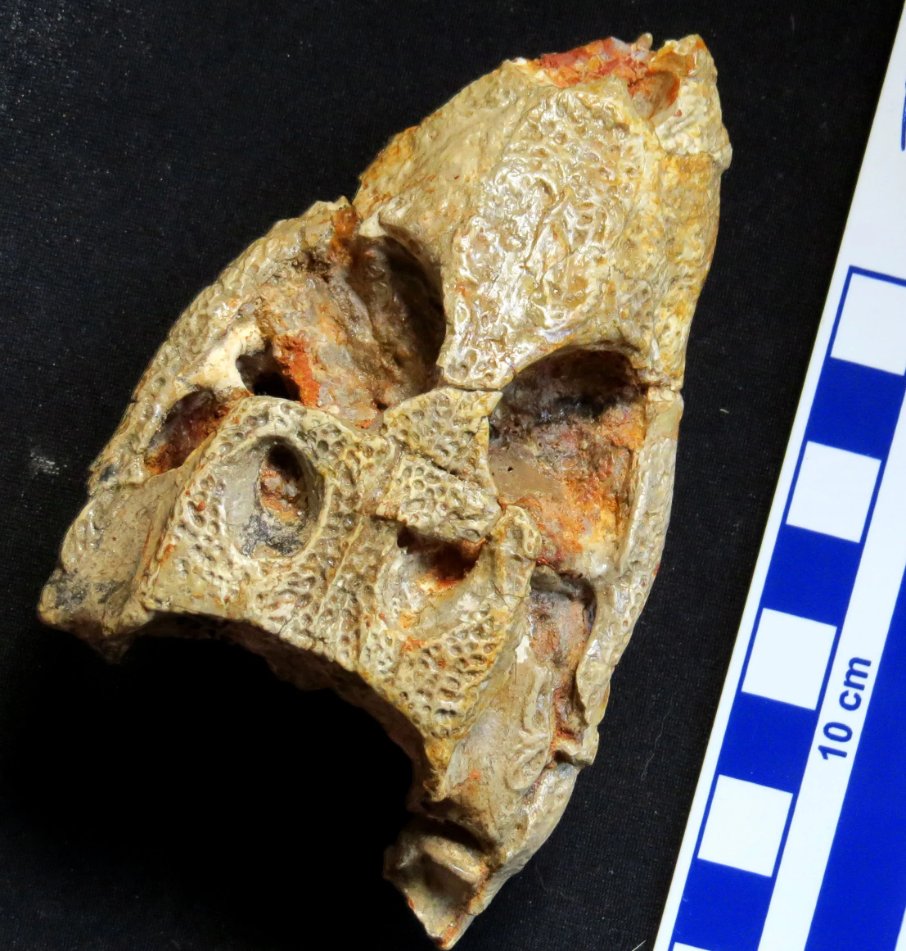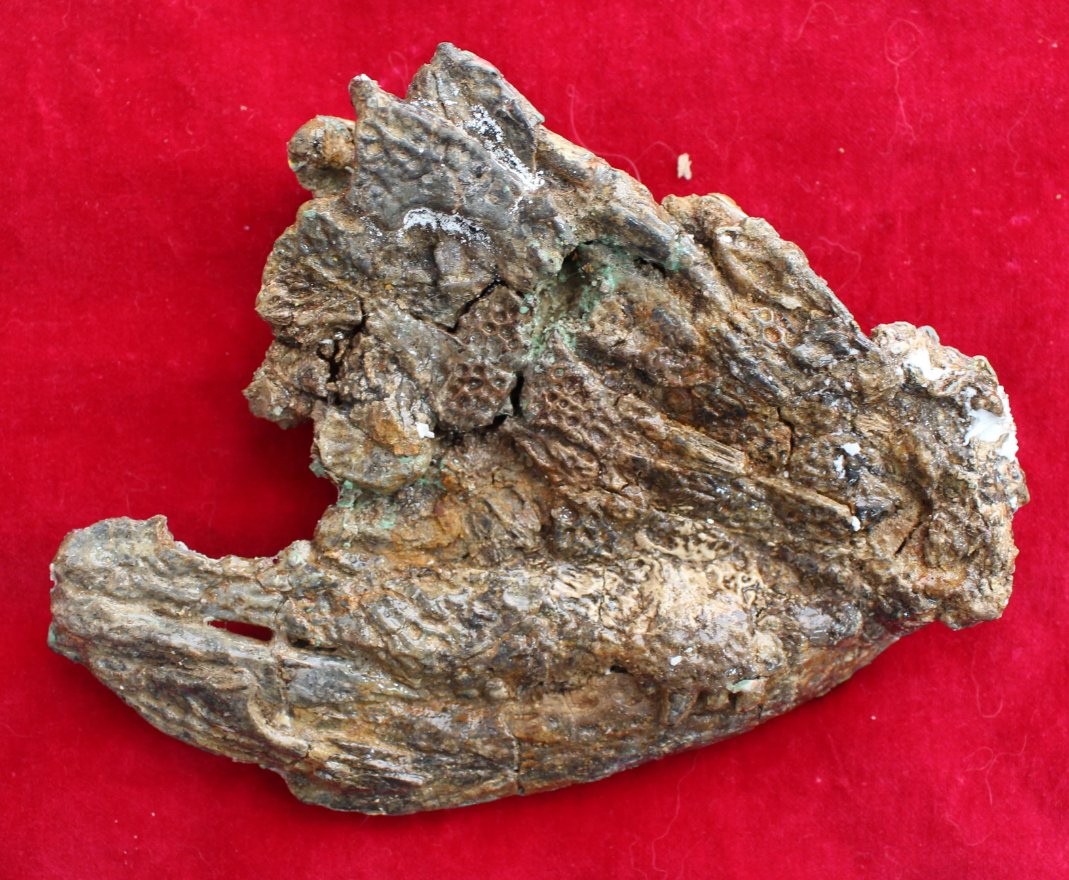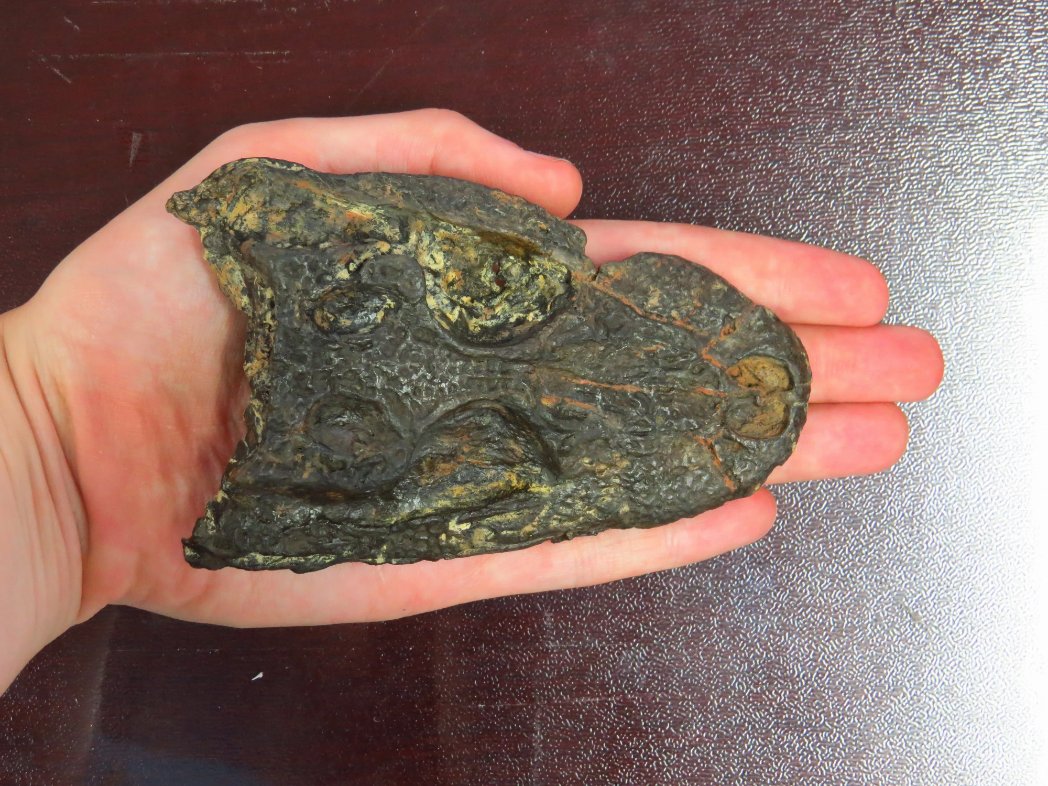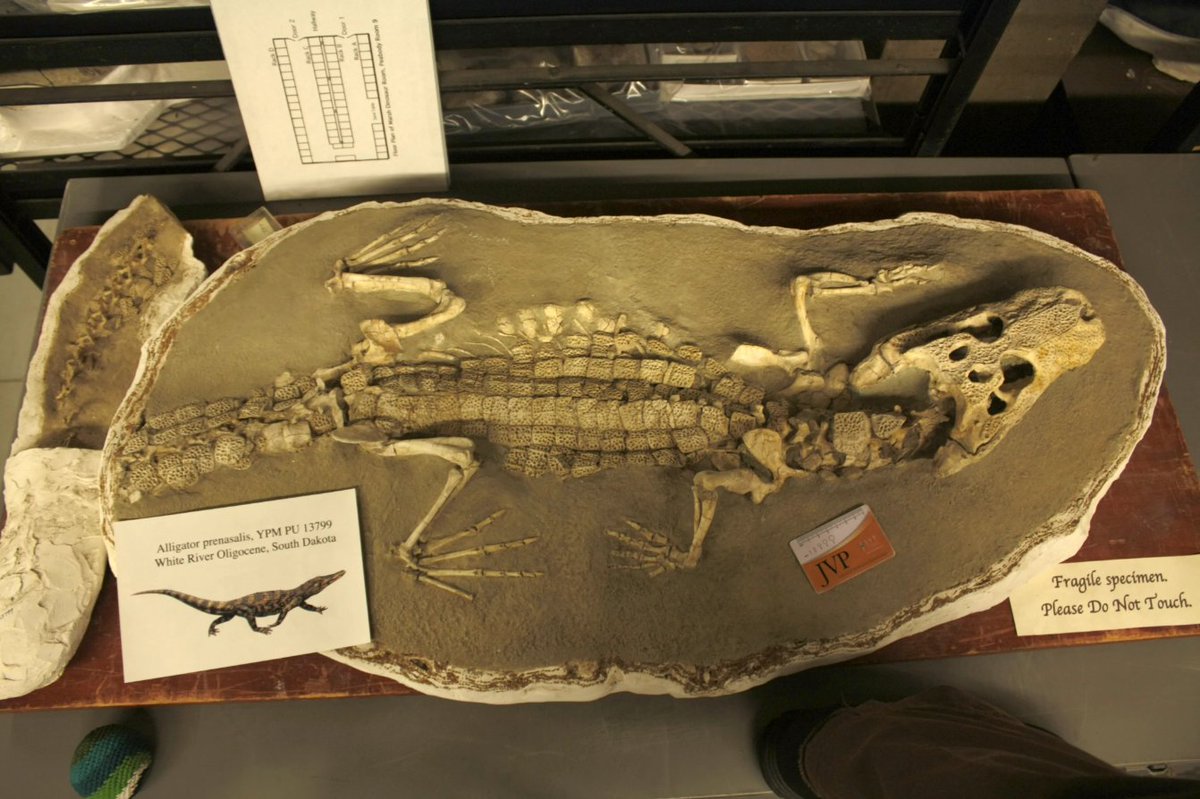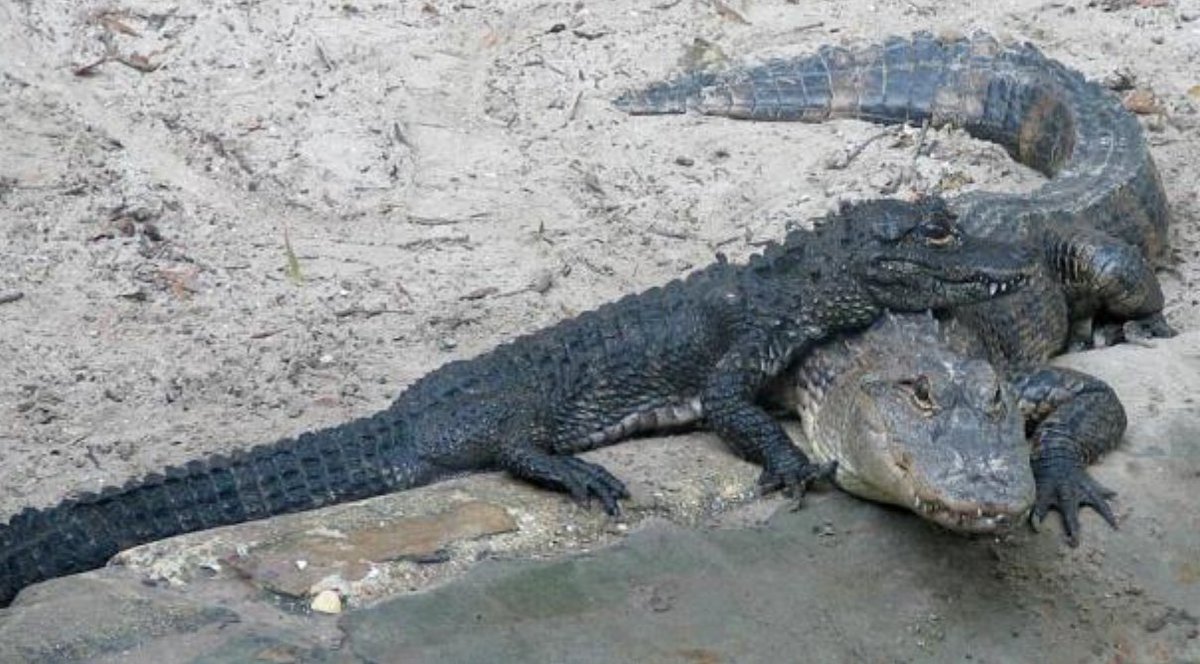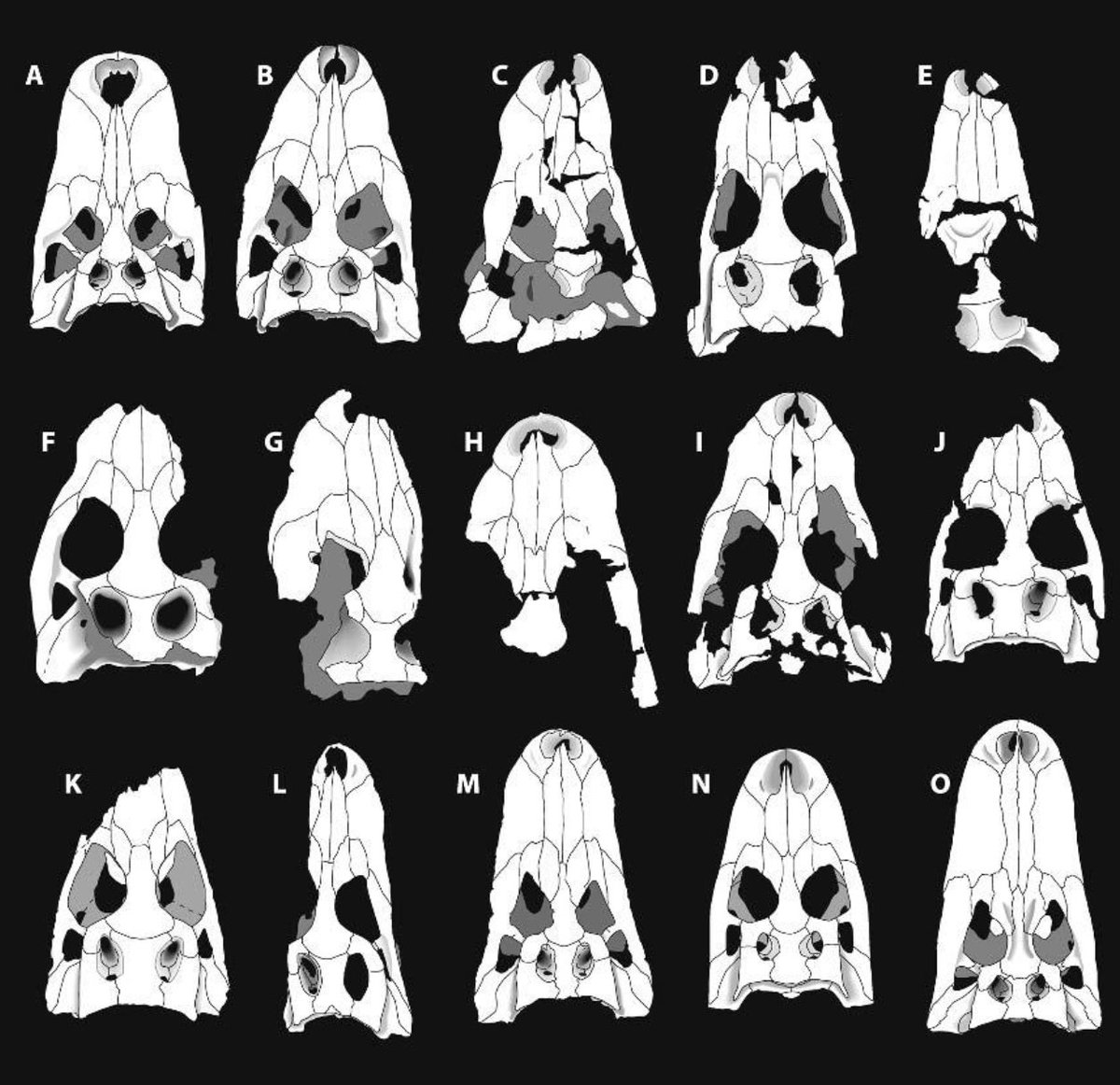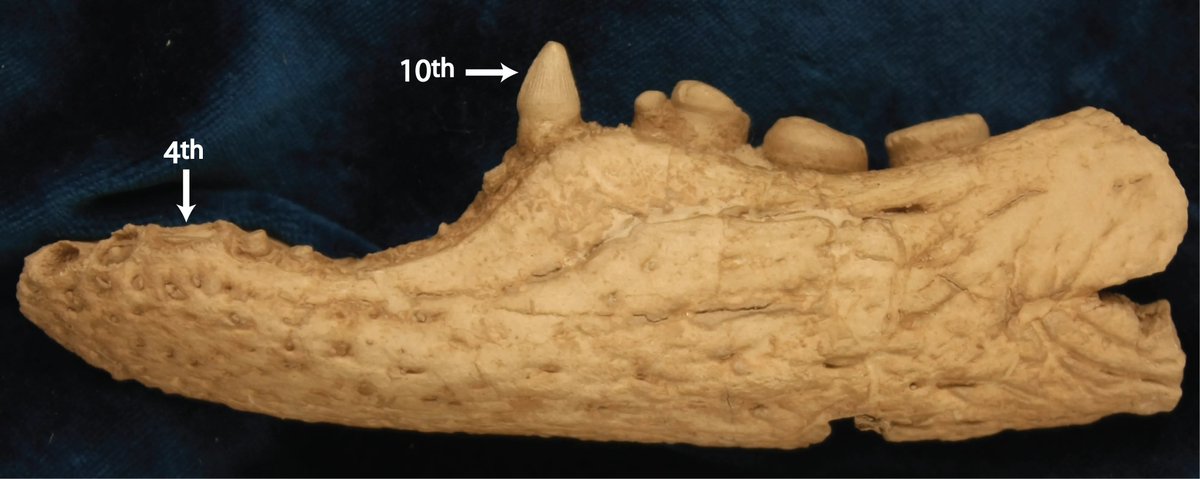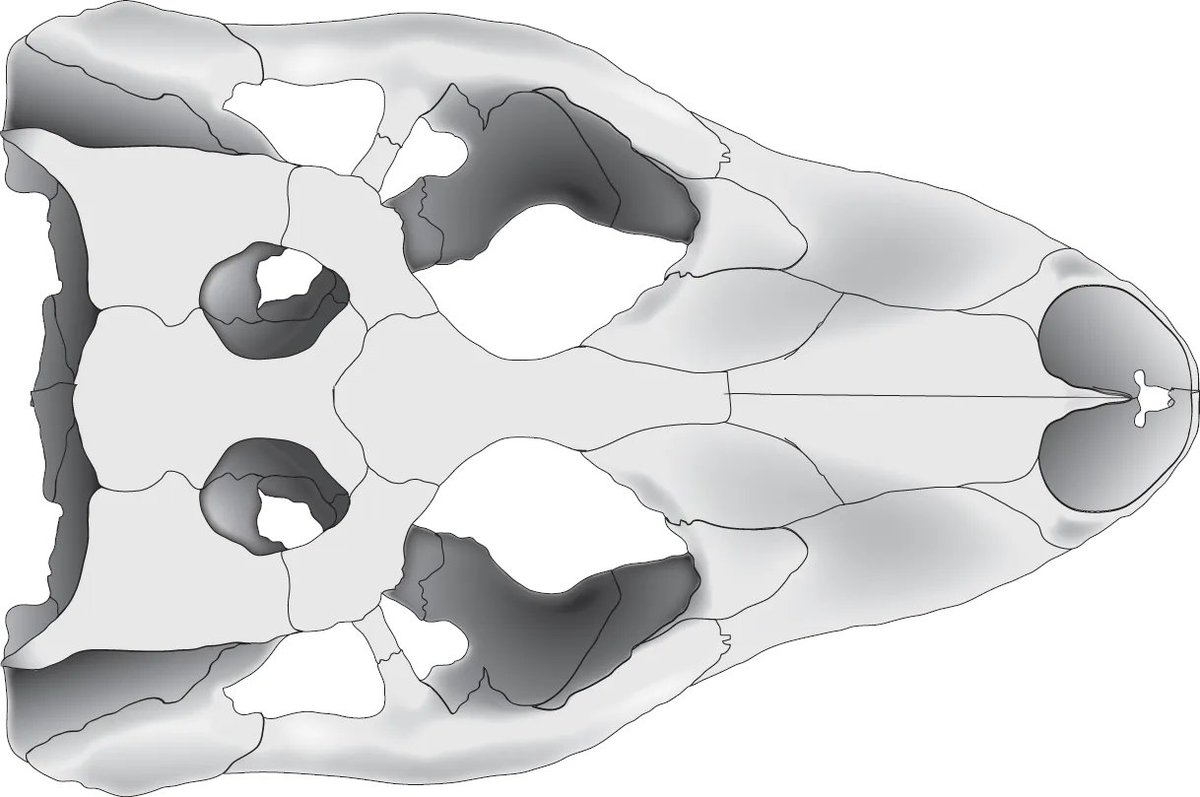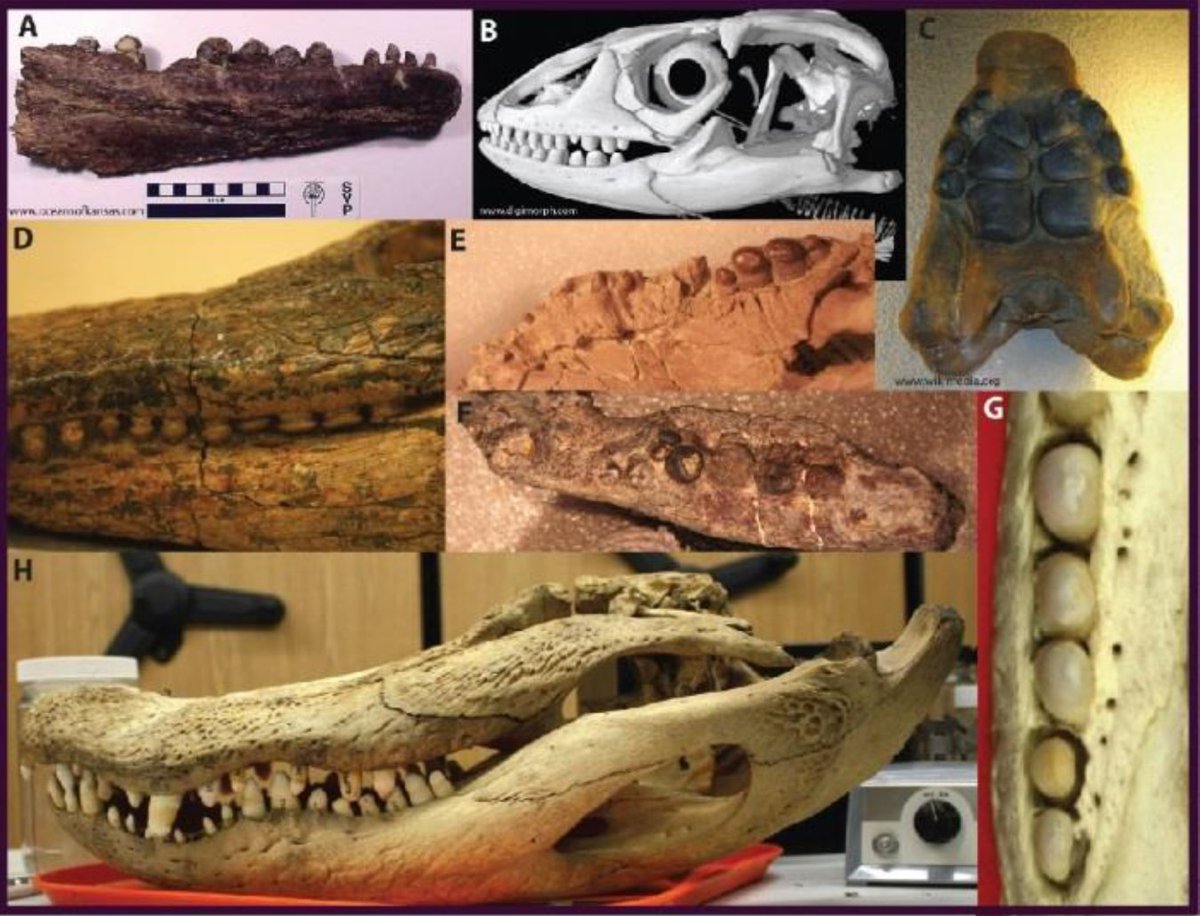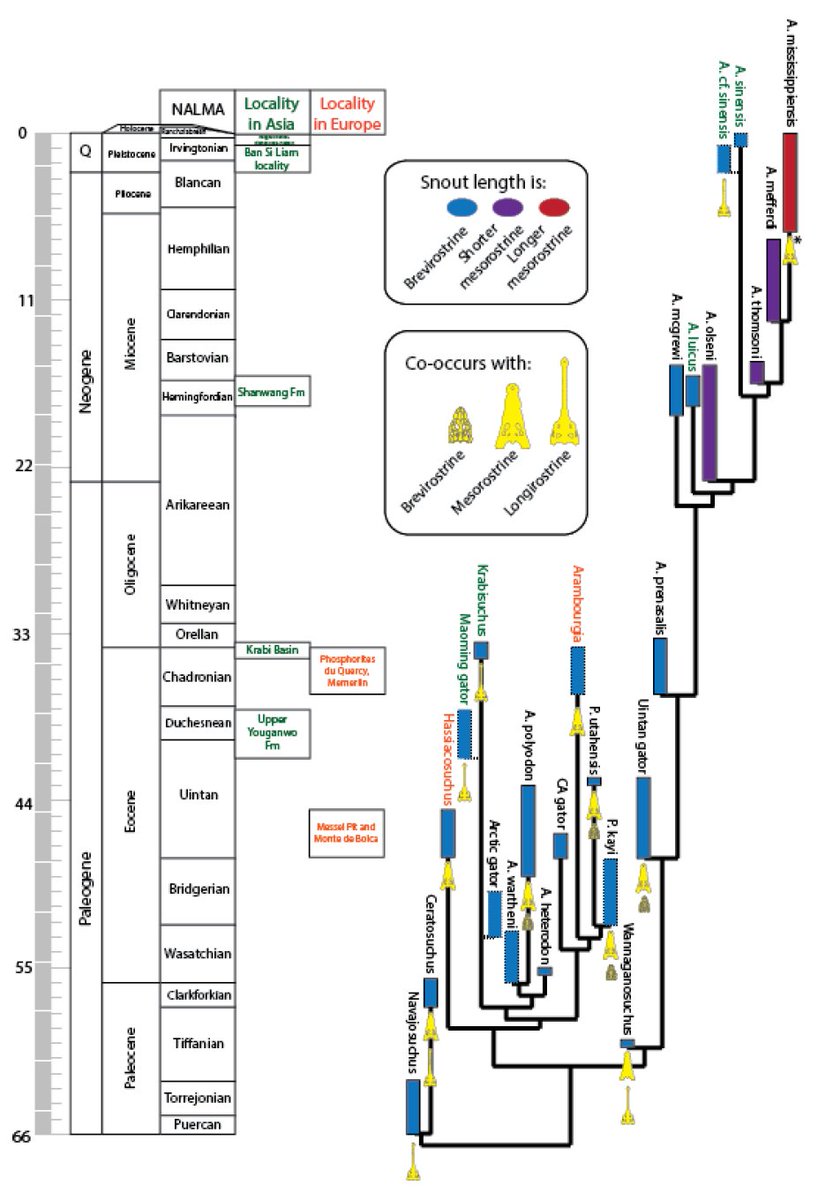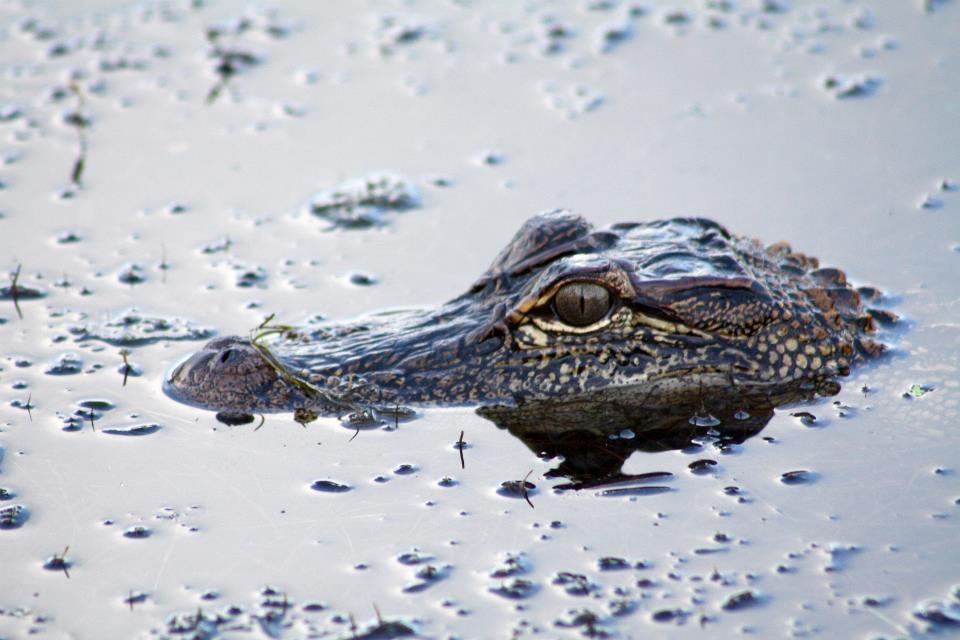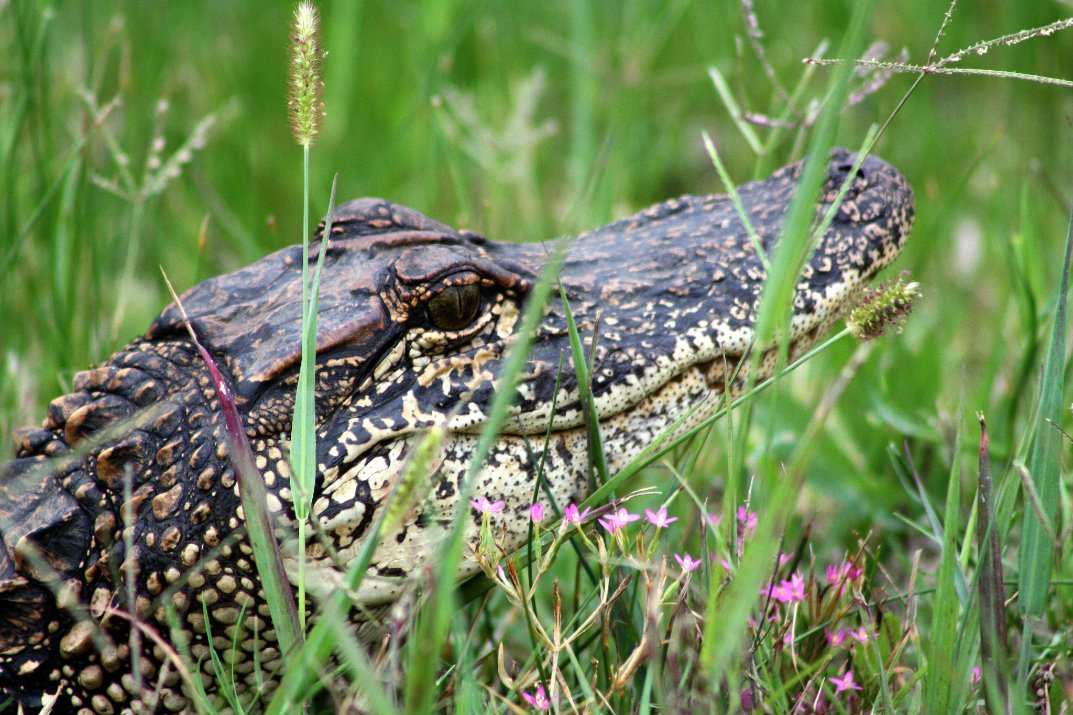It's #WorldCrocDay! I don't talk about it much on here 'cause...I'm honestly still not over the trauma grad school caused...but I study alligatorines (everything closer to American #Alligators than to Spectacled Caimans). And I'm gonna talk a bit about 'em today.
There are two species alive today: Chinese (left) and American (right)
Photo by @UglyFossils
#WorldCrocDay
Photo by @UglyFossils
#WorldCrocDay
But there were a couple dozen more (that we know of) over the course of their ~66 million year-long existence.
Figure from Brochu (2004). The first two are just outside Alligatoridae (alligatorines+caimans), but the rest are alligatorines.
#WorldCrocDay
Figure from Brochu (2004). The first two are just outside Alligatoridae (alligatorines+caimans), but the rest are alligatorines.
#WorldCrocDay
American #alligators are really weird gators. Like Brochu's figure shows, most of them have short snouts. They're also almost all small (~5-6 ft as adults) and have bulbous back teeth.
#WorldCrocDay
#WorldCrocDay
This type of tooth is an adaptation for durophagy, crushing and eating hard things . Wild Savannah Monitors (top center) eat crunchy arthropods and snails. Placodonts (top right) probably ate molluscs.
Top 3 images not mine
#WorldCrocDay
Top 3 images not mine
#WorldCrocDay
Most extinct alligatorines lived alongside large, generalist crocodyloids (things closer to crocodiles than gators). What's a species to do when it can't beat its competitor? Find a different niche.
#WorldCrocDay
#WorldCrocDay
By moving from the large generalist niche of their ancestors to a small durophagy-specialized one, they were able to coexist.
When the climate cooled and the heat-loving crocs were extirpated, the surviving gators began the shift back to being large generalists.
#WorldCrocDay
When the climate cooled and the heat-loving crocs were extirpated, the surviving gators began the shift back to being large generalists.
#WorldCrocDay
Mind you, the extant American Alligator still loves crunchy things like turtles. But the small extinct ones wouldn't have predated any this big—they would've been left for the larger crocs.
#WorldCrocDay
#WorldCrocDay
And that's how #alligators show that specialization is not an evolutionary dead end. It's possible for specialists to evolve into generalists, contrary to what you're normally taught in #ecology. All it takes is opportunity.
#WorldCrocDay
#WorldCrocDay
Also that, no, they haven't stayed the same for millions of years, so stop calling them "living fossils". Just go ahead and strike that phrase from your lexicon entirely.
#WorldCrocDay
#WorldCrocDay
Now go follow the hashtag to hear more about the amazing, diverse history of crocodylians and their extinct relatives from a whole host of croc researchers!
#WorldCrocDay
#WorldCrocDay

 Read on Twitter
Read on Twitter